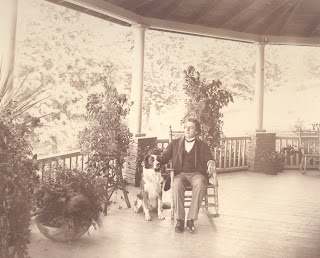Anton Seidl was born in Pest, Hungary in 1850. After studying at the Leipzig Conservatory, he returned to Pest to study under Hans Richter who had been assisting Richard Wagner in preparing the score of Die Meistersinger. Upon Richter’s recommendation Seidl, was engaged by Wagner in 1872 to help him in his work at Bayreuth, becoming a member of Wagner’s household for six years. During that time he made the first copy of the Nibelungen score and helped to complete the scores of Gotterdammerung and Parsifal.
Seidl came to prominence as Wagner’s principal assistant at the first Beyreuth festival in 1876. After conducting in Europe, Seidl was invited to New York to conduct German opera at the Metropolitan Opera. He made his debut on November 23, 1885, conducting Lohengrin. When German opera at the Met was dropped in 1891, he became the conductor of the Philharmonic Society of New York, returning to the Met in 1897. During this time he became a naturalized American citizen, but died suddenly of ptomaine poisoning at the height of his career in 1898.
Seidl’s papers include correspondence with Cosima and Richard Wagner, Lilli Lehman (the first American Isolde), Edvard Grieg, Antonin Dvorak, violinist Maud Powell, Hans Richter, and many others, chiefly concerning musical performances, composition, and related matters. Included in his manuscripts are essays such as “About Conducting,” and “Wagner in American,” his working collection of orchestral scores, and photographs, programs, clippings and other ephemera relating to his conducting career.
Katherine Syer’s work will, she writes, focus on Seidl as an “outstanding blend of a gifted musician with a very practically-oriented gift in the areas of theatrical sensibility and organization.” We look forward to seeing the book and to attending the 2009 Bard Music Festival.
Photograph of Anton Seidl and his dog Wotan, July 15, 1895, Brighton Beach, Coney Island, where he conducted summer concerts of the Seidl Society in the 1890s.
